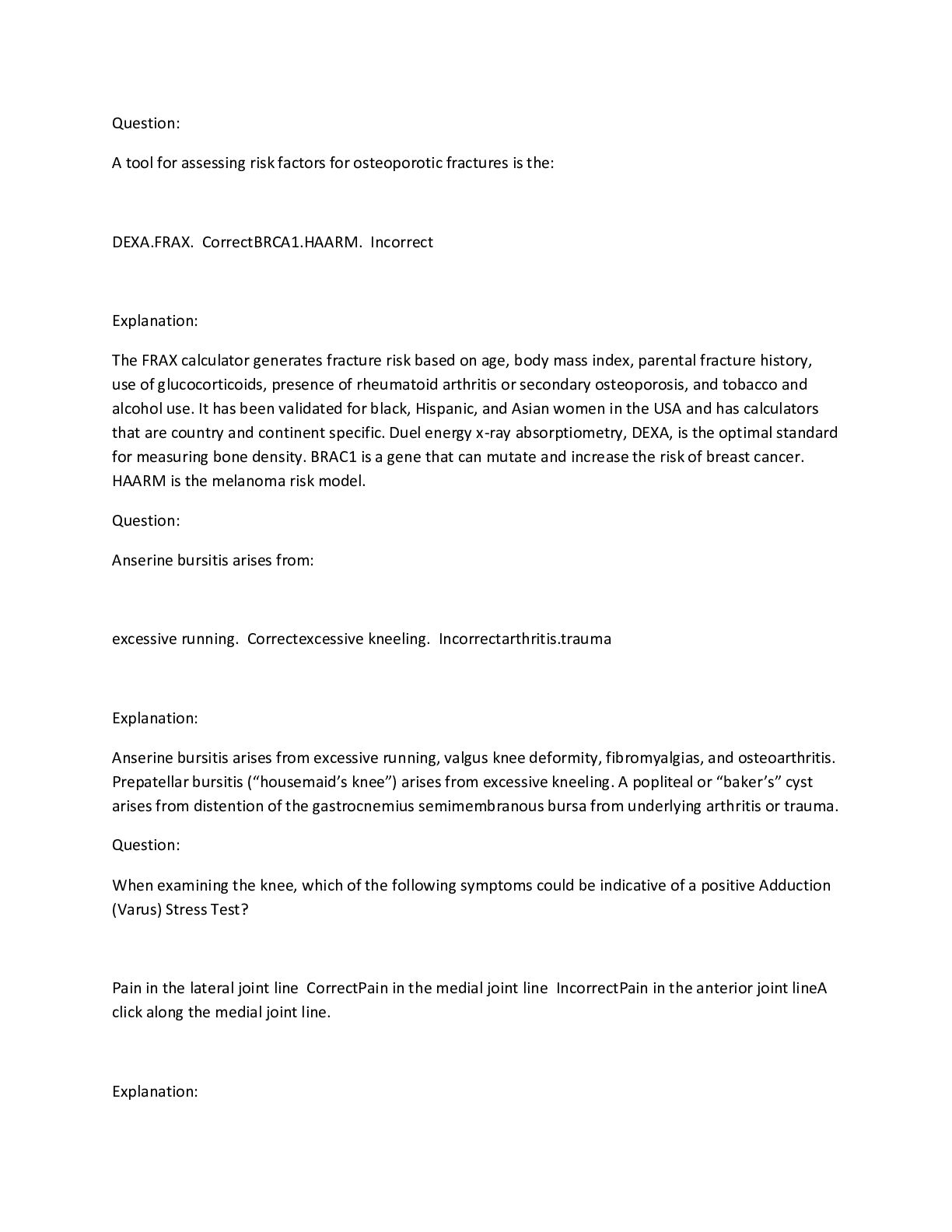*NURSING > EXAM > NURS-6650 FINAL EXAM STUDY GUIDE WITH QUESTIONS AND ANSWERS ,ALL VERIFIED 100% CORRECT| A GRADED. (All)
NURS-6650 FINAL EXAM STUDY GUIDE WITH QUESTIONS AND ANSWERS ,ALL VERIFIED 100% CORRECT| A GRADED.
Document Content and Description Below
NURS-6650 FINAL EXAM STUDY GUIDE WITH QUESTIONS AND ANSWERS ,ALL VERIFIED 100% CORRECT| A GRADED.Group participation is an important aspect of how successful group therapy will be. The PMHNP recogni... zes that the gender of group participants can play a role in the likelihood of group participation. Which statement about gender and group composition does the PMHNP take into account? A. Men display more intimacy and less competition in all-male groups. B. Women display less intimacy and more competition in all-female groups. C. Men in evenly mixed groups are more self-disclosing and less aggressive. D. Women in evenly mixed groups are equally as active as they are in all-female groups During his second group therapy session, a member, who was quiet the previous week, becomes very judgmental. He criticizes another member by saying, “Mary, you are always late because you don’t respect our group.” Then he adds, “In fact, all of you are disrespectful and uncaring.” What is an appropriate step by the PMHNP? A. To learn the underlying meaning of the statements B. To ask about his actual motivations and aspirations C. To help reveal the impact of the behavior on others D. All of the above PMHNP is putting together a heterogeneous, interactional therapy group. During an initial screening, a patient explains that he is unemployed because he keeps getting fired from new jobs after several months. The therapist asks, “Why do you think those companies let you go?” The patient’s reply is, “Those companies are all terrible. They don’t know how to treat employees.” After asking the patient if he thought about his role in getting fired, the patient says, “Why should I? I am not part of the problem.” Based on this information, what is an appropriate observation by the PMHNP? A. The patient is able to participate in the group task and would benefit from it. B. The patient is able to participate in the group task but may be harmed by it. C. The patient should decide if he would feel comfortable joining group therapy. D. The patient will likely not benefit from group therapy and should not join. The PMHNP recognizes that hostility is unavoidable in a group and acknowledges that a frequent source of hostility can be parataxic distortions. Which situation is likely to present a parataxic distortion within the group? A. Peggy, a 54-year-old woman, acting as a surrogate to Susan, who is a younger and newer member of the group B. Jerry, a Mexican medical doctor who denies his heritage and Carlos, a proud Mexican warehouse employee C. Spencer, a Caucasian politician with a history of substance abuse, and a Caucasian therapist D. A successful entrepreneur and an aspiring spoken-word poet During a first group therapy session, a member is outgoing and participates actively. Based on this information, what is an appropriate prediction about this group member by the PMHNP? The member may be influential A patient in group therapy named Ted shares personal information for the first time. He seems nervous but continues to talk. How might the PMHNP use nonverbal positive reinforcement to support Ted’s feeling more comfortable? A. Staring intently at Ted while raising an eyebrow B. Looking at other members rather than directly at Ted C. Leaning forward and nodding as Ted shares his story D. Ignoring any members who are not listening to Ted [Show More]
Last updated: 2 years ago
Preview 1 out of 13 pages

Buy this document to get the full access instantly
Instant Download Access after purchase
Buy NowInstant download
We Accept:

Reviews( 0 )
$15.00
Can't find what you want? Try our AI powered Search
Document information
Connected school, study & course
About the document
Uploaded On
Nov 10, 2020
Number of pages
13
Written in
Additional information
This document has been written for:
Uploaded
Nov 10, 2020
Downloads
0
Views
109


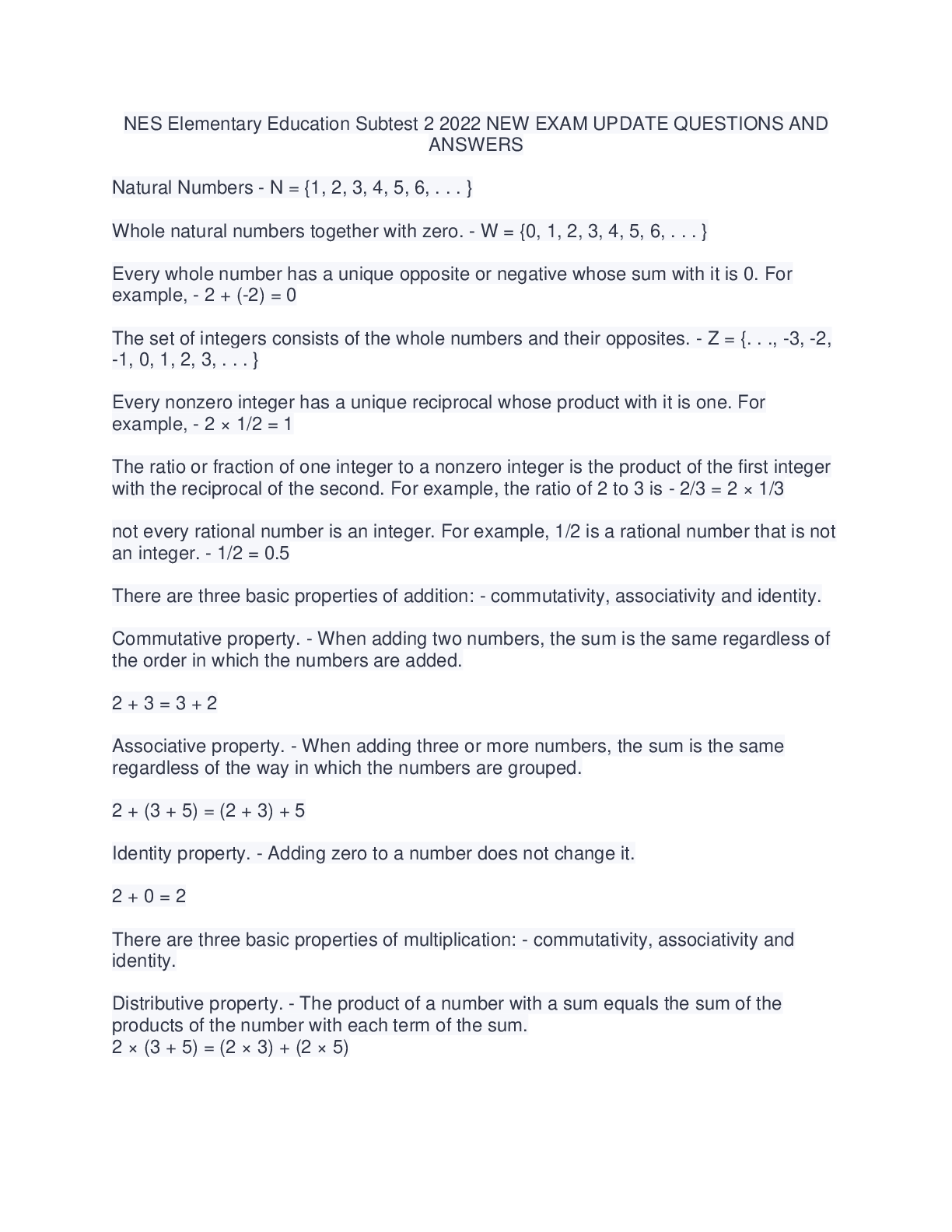
.png)


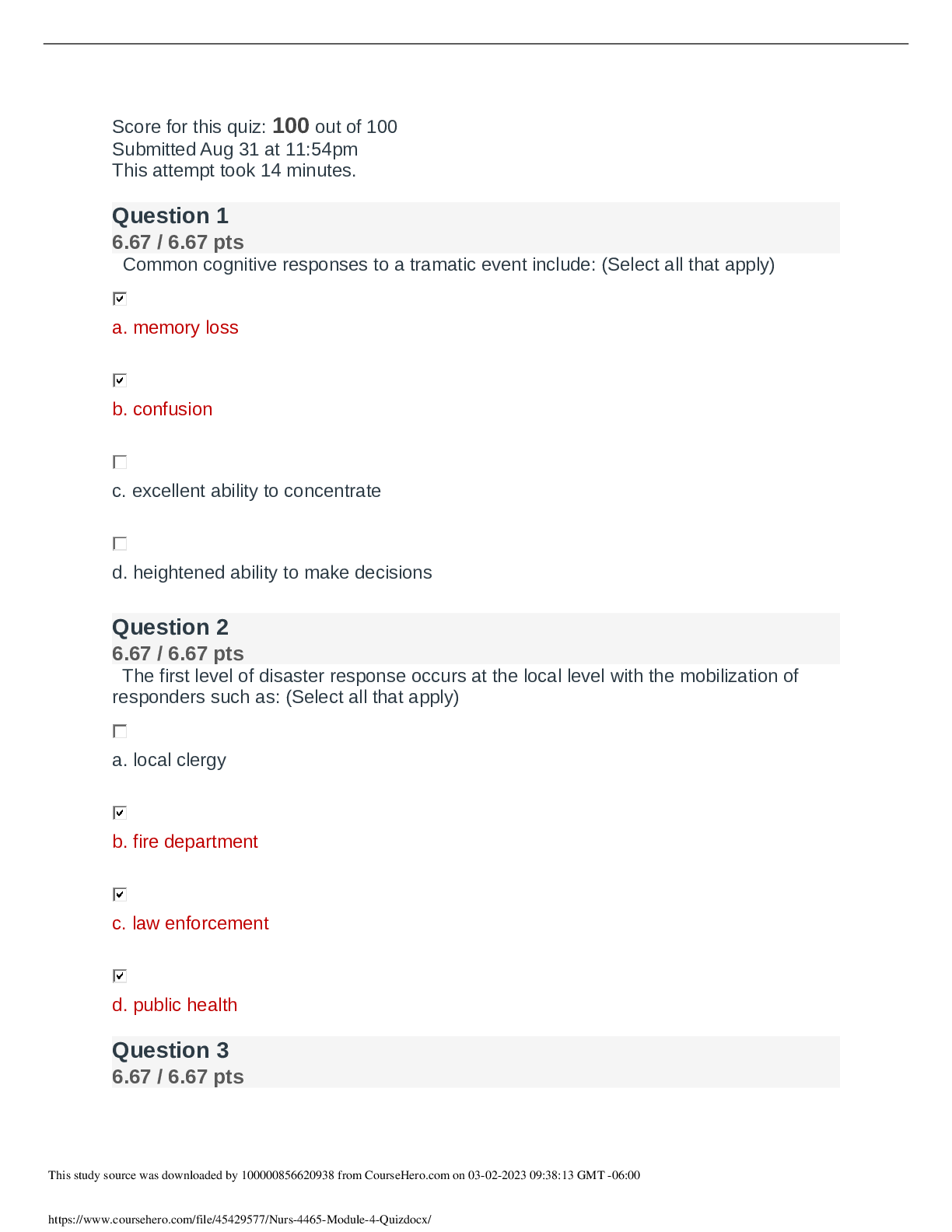

.png)
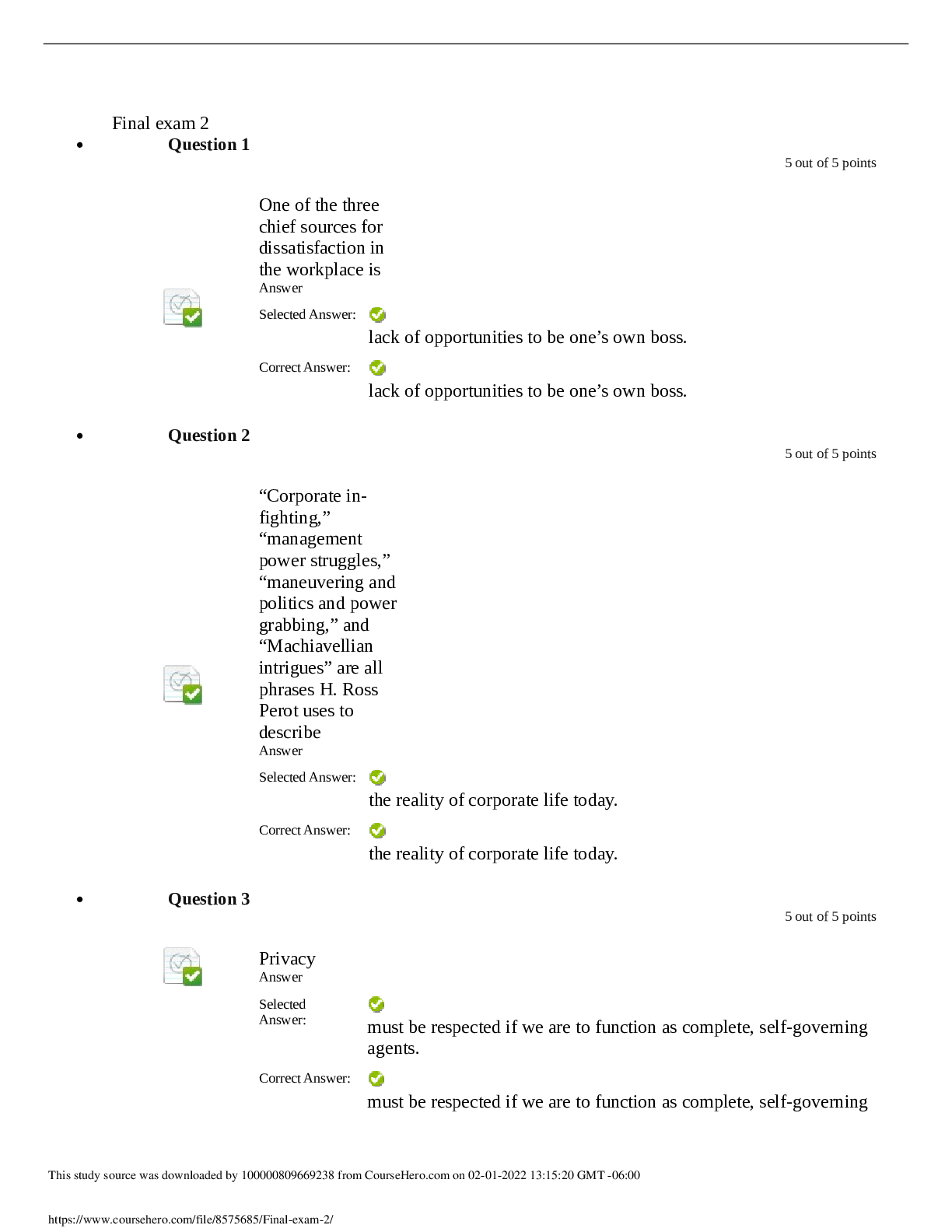
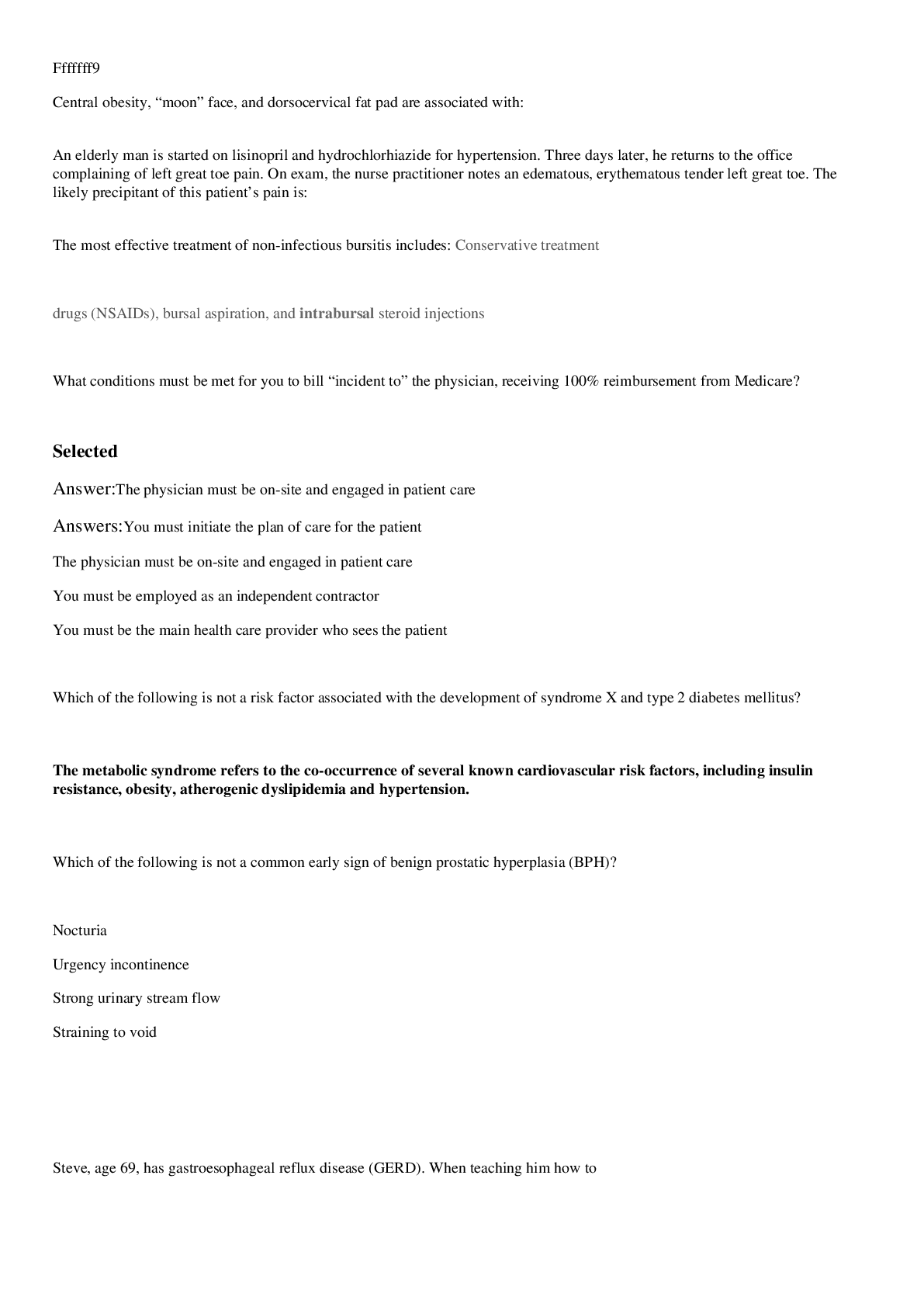

.png)








